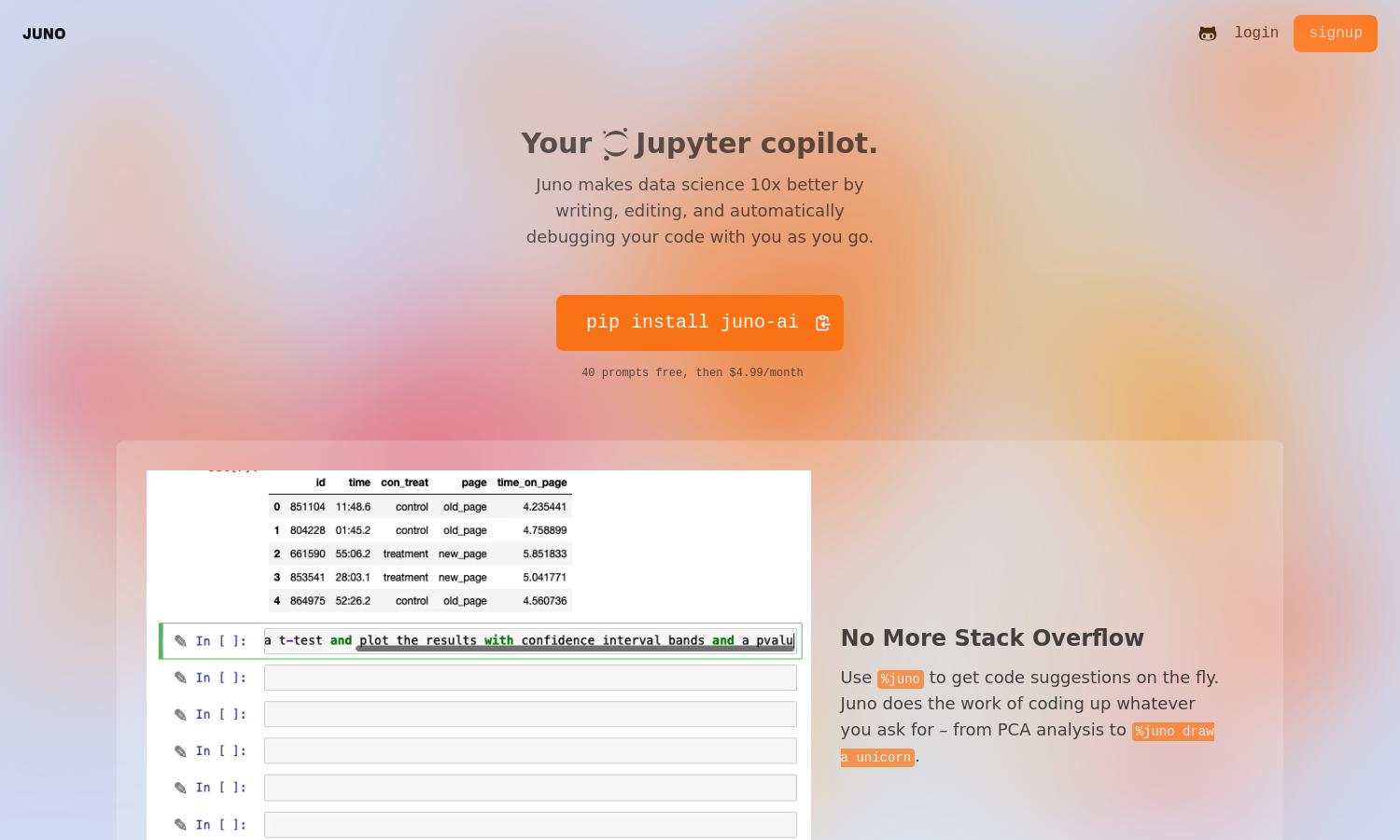Juno

About Juno
Juno is a groundbreaking AI coding assistant designed for data scientists and analysts. By providing instant code suggestions, debugging assistance, and optimized coding edits, Juno enhances productivity and simplifies complex tasks. Users can easily overcome coding challenges and focus on insightful data analysis with Juno's innovative features.
Juno provides flexible pricing with 40 free prompts and a subscription plan at $4.99/month. Users can experience exceptional value through unlimited access to coding assistance and debugging support. Upgrading to the paid plan ensures users enjoy a seamless experience with advanced features that boost their data science productivity.
Juno's user interface is designed for intuitive navigation, featuring clear, organized sections that enhance the coding experience. The streamlined layout allows users to easily access tools like code suggestions and debugging features, creating a frictionless environment. Juno ensures an optimized experience tailored for efficiency and convenience.
How Juno works
To use Juno, users sign up for an account and can start coding instantly. By using the %juno command, they receive real-time coding suggestions based on their input. The Debug button provides efficient troubleshooting for errors, while the Edit Button optimizes or rewrites code, making the entire process seamless and user-friendly.
Key Features for Juno
Real-time Code Suggestions
Juno's real-time code suggestions empower users to enhance their coding efficiency and accuracy. By using contextual input, Juno offers instant help in coding tasks, allowing users to seamlessly integrate suggestions into their projects. This feature significantly reduces coding errors, making Juno an essential tool for data scientists.
Automated Debugging
Juno's automated debugging feature swiftly identifies and resolves coding errors, saving users valuable time. By pressing the Debug button, users receive instant solutions for various coding issues, allowing them to concentrate on data analysis instead of getting stuck on bugs. Juno makes coding frustrations a thing of the past.
Code Editing Capabilities
Juno's code editing capabilities offer users the benefit of a virtual pair programmer. Users can refine, enhance, or completely rewrite their code through intuitive interactions, ensuring optimal solutions based on specific data needs. This feature helps users improve their coding practices and produce cleaner, more efficient code.
You may also like:








